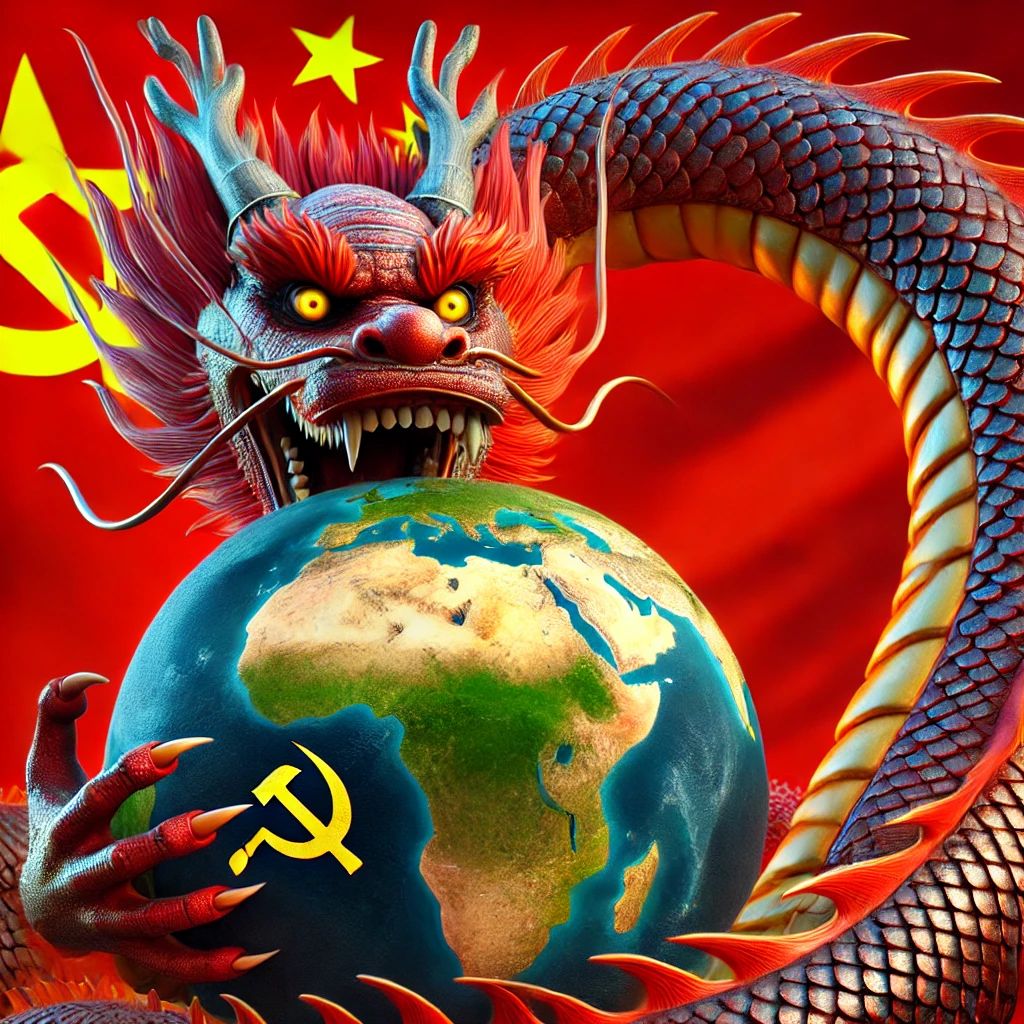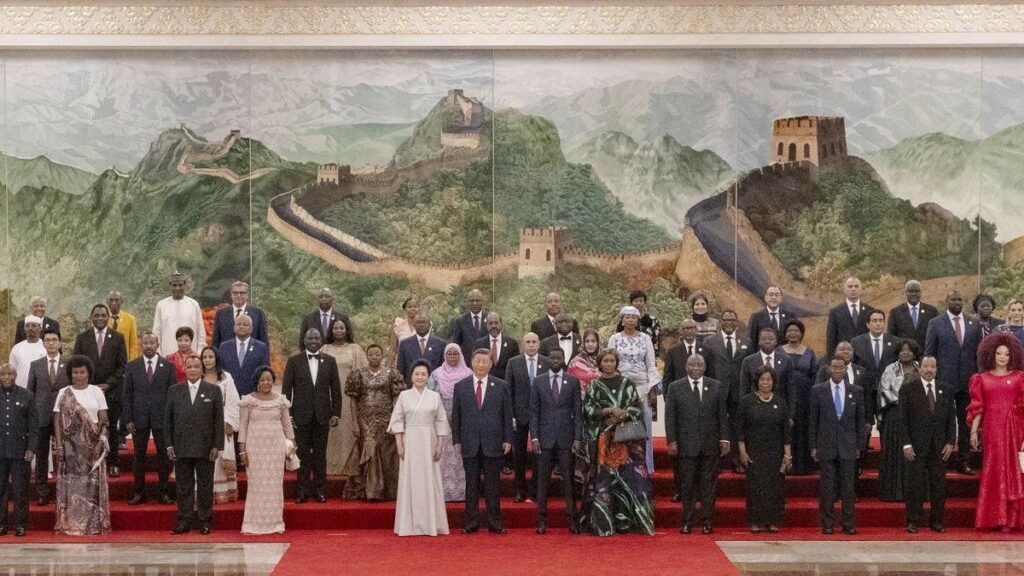
- Strategic Importance of the Summit: The 2024 China-Africa Summit is crucial for strengthening China-Africa relations, with over 50 African leaders attending to discuss issues like infrastructure, investment, and the evolving global power dynamics, especially with Africa’s growing leverage in multilateral negotiations.
- Focus on Infrastructure and Debt: Key discussions will focus on infrastructure development, debt sustainability, and resource management. African leaders are expected to seek additional funding for critical infrastructure projects while negotiating better loan conditions and terms for natural resource extraction.
- Geopolitical Implications: The summit highlights China’s expanding influence in Africa, positioning itself as an alternative to Western aid models by promoting green technology and offering less conditional economic assistance. African nations aim to maintain strategic ties with China while balancing their sovereignty and relationships with other global powers.
The 2024 China-Africa Summit, held in Beijing from September 4-6, is a pivotal event for the development of new China-African relations. This summit will host over 50 African leaders and will deliberate on issues such as infrastructure, investment, and resources, as well as the evolving power dynamics in the global economy.
Background
The Forum on China-Africa Cooperation (FOCAC) has been instrumental since its inception in 2000. This year’s summit is especially significant, considering China’s expanding engagement in Africa and the recent inclusion of Ethiopia and Egypt in the BRICS Forum. Beyond being a diplomatic event, the summit is a strategic move by China to consolidate and reinforce its position as Africa’s largest trading partner and main creditor, with over $191 billion invested between 2006 and 2021.
Geopolitical Context
The political implications of this summit are immense. While the US and other Western countries aim to ‘contain’ China, African leaders are using the opportunity to negotiate better deals with China. African countries are aware of their leverage in the current multilateral world, where they can pressure both Chinese and Western partners for more favourable terms.
There is a marked contrast between the approach of Western countries, which often provide conditional aid, and that of China, which is seen by many African leaders as a partner in combating imperialism, both historically and economically. The summit will showcase China’s vision of promoting green technology and sustainable development, including projects such as the “Africa Solar Belt Program,” which aims to bring solar energy to thousands of households across the region.
Key Themes and Discussions

Infrastructure Development: Infrastructure remains the cornerstone of China-Africa relations. Many African leaders are likely to seek additional funding to improve essential infrastructure, which is crucial for the region’s development. The summit will likely focus on China’s role in financing the construction of roads, railways, and energy infrastructure to enhance connectivity and commerce across Africa.
Debt Sustainability: Rising debt levels are a political concern for many African nations, making the issue highly sensitive. Business leaders will likely push for improved loan conditions or the restructuring of existing debt. Recent protests, particularly in countries like Kenya, have raised concerns about debt, especially those tied to China.
Resource Management: African nations are seeking better terms for their natural resources. The summit will likely involve discussions on securing more favourable deals for resource extraction, particularly in the context of minerals critical to global supply chains, such as lithium and cobalt.
Green Technology and Sustainable Development: Financing green technologies will be a key topic of discussion, drawing the attention of numerous nations. The summit is expected to highlight China’s readiness to assist Africa’s transition to green energy, in line with international climate change goals, while addressing the continent’s power needs.
Implications for African Nations
The summit will have long-term effects on African countries, helping to set new economic targets and strengthen ties between China and Africa. African leaders are not merely seeking funding for their countries; they are also aligning their nations within the broader strategic political landscape that involves both Eastern and Western blocs.
It is anticipated that African states will secure new pledges from Beijing during the summit, while also gaining a clearer understanding of Beijing’s leverage in financing. The challenge will be how to maintain these relations without compromising their sovereignty or straining relations with other economic partners.
Conclusion
The 2024 China-Africa Summit is a significant event for African nations as they seek to redefine their position in the global economy. As China becomes more assertive in international markets, and amid the backdrop of geopolitical rivalry, African leaders have the opportunity to act collectively and demand better deals for investment and trade. The outcomes of this summit will not only shape the future of China-Africa relations but also influence Africa’s role in the broader global order.
References:
- China-Africa summit 2024: What’s in it for Beijing, Xi Jinping and Africa?-https://www.aljazeera.com/news/2024/9/4/china-africa-summit-2024-whats-in-it-for-beijing-and-for-africa
- No preaching’ and other tactics as China woos African leaders-https://www.bbc.com/news/articles/cdx6d654556o
Parag Gilada is a Mukherjee Fellow who has recently graduated from the Jindal School of International Affairs with a keen interest in Sports Diplomacy. Views expressed are the author’s own.
